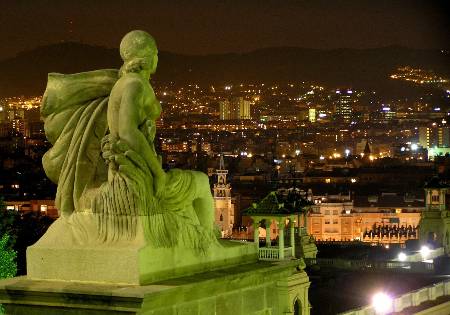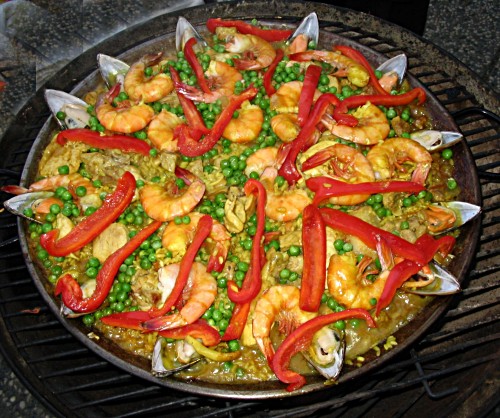COCC Courses in Barcelona
Core Courses for Fall 2023 in Barcelona
Spanish Language (4 credits)
Every Barcelona student will study Spanish in a course to be taught by program partners Barcelona SAE: Span 102, 103, 201, 202, or 203 and advanced Spanish Conversation Span 213. We recommend that students have some Spanish language experience prior to departing for Spain.
HUM 107 Spanish Life and Culture (3 credits)
Every Barcelona student will also study the culture of their host country in a course to be taught by Barcelona SAE local or international faculty. The student will gain a broad overview of contemporary Spanish society by examining cultural traditions and values. Besides topical lectures by native guest lecturers, the course engages students in experiential learning through field trips to such historic and cultural sites as Gaudi's Barcelona, the Gothic quarter, and the Dali museum.
COCC Associate of Arts transfer courses for Fall 2023.
Students have the option to take 2 or 3 of the following classes taught by a COCC faculty member, Dr. Amy Harper. All three courses are considered Social Science Discipline Stuides and Cultural Literacy courses for the AAOT transfer degree. Dr. Harper has taught at COCC since 2002 as a Professor of Anthropology. She has experience leading student groups in Europe and has lived, studied and worked in Europe throughout her academic career. She is a COCC Faculty Achievement Award winner and the recipient of Fulbright research grants. Her teaching interests include multicultural Europe, food and culture, language and culture and fieldwork methods.

ANTH 103 Cultural Anthropology, 4 credits
This course provides students with an introduction to the diversity of human beliefs and behaviors around the world. Cultural Anthropology explores cross-cultural similarities and differences in systems of values, family, religion, economics, politics, and social structure, including issues of race and ethnicity. While this course is global, we will pay particular attention to Barcelona, Spain, and Europe. Students will have the opportunity to engage in research specific to Barcelona. Some potential topics could include: immigration in Spain; tourism in Barcelona; Spain, Europe, and climate change (this is particularly relevant now given the energy crisis that is emerging as a result of Russian invasion of Ukraine); Religion and religious minorities in Barcelona.
ANTH 240 Language and Culture, 4 credits
This course provides students with an introduction to the relationship between communication and culture. It is designed to help students become familiar with and understand the mechanics of language from brain structure to how we make sounds; cross-cultural and historical variations between and within communicative systems; and language as a form of social interaction, specifically exploring the complex and diverse relationships between language, socio-cultural, politics and identity. While in Barcelona we will pay particular attention to questions of language and identity and linguisitic minorities (such as Catalan, Basque, Galacian, and Aranese), we will also explore the role of art and music in Spain to gain insight in to expressive communication.

|
ANTH 250 Food and Culture, 4 credits This course provides an introduction to the diversity of food ways and the cultural significance of food and eating around the world. Topics explored will include food rules and rituals, consumption and health, food movements, food scarcity and poverty, global movement of foods, as well as the gendered dimensions of food and eating, with particular focus on body and body image. We will pay particular attention to the food issues in Barcelona. We will explore local markets and look at how history and immigration have shaped the local cuisine (specifically exploring Muslim, Jewish, and American influences on Spanish cuisine). W may also be able to visit local farmers, and explore ways in which people in Barcelona and Spain are attempting to address climate and social issues related to food. By the end of the course, students will have gained a broad-ranging familiarity with the cultural, political and economic aspects of past and present human food systems and be able to recognize and analyze the social linkages and hierarchies embedded in food systems. |
 |
